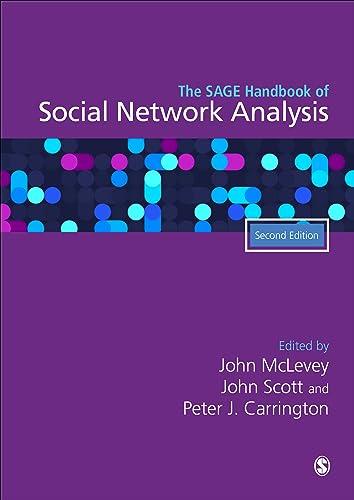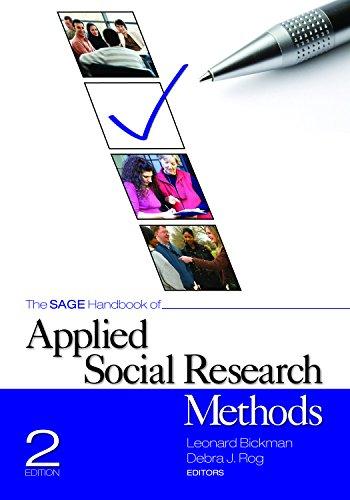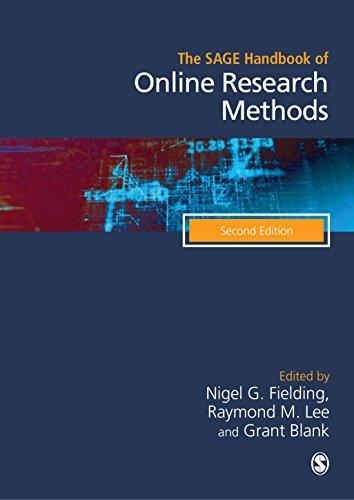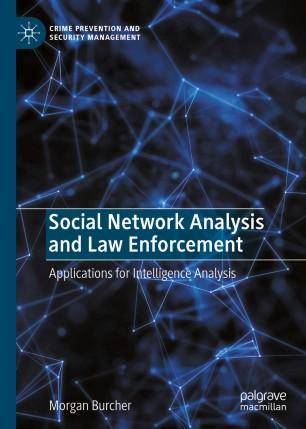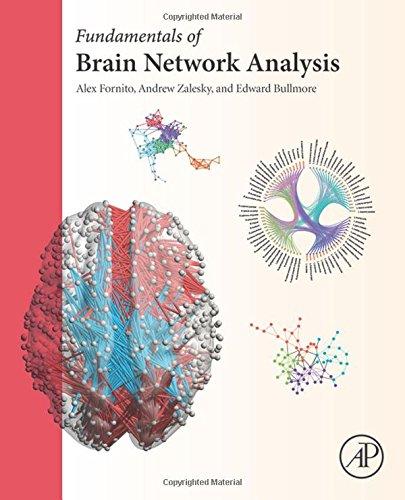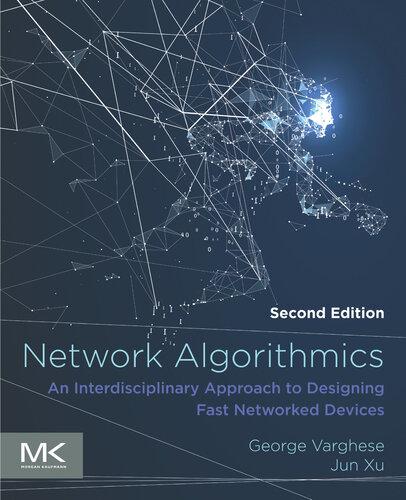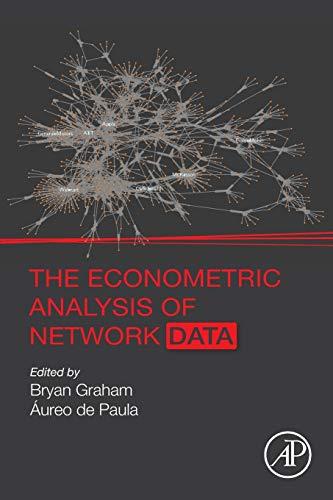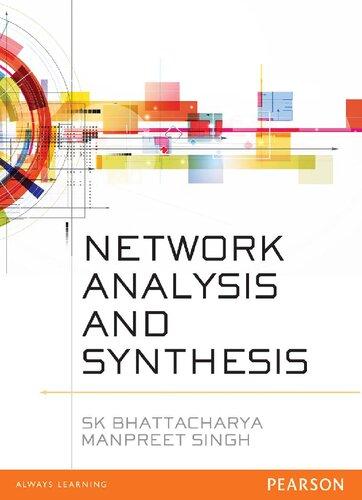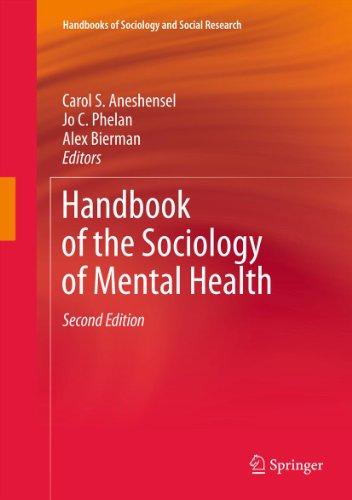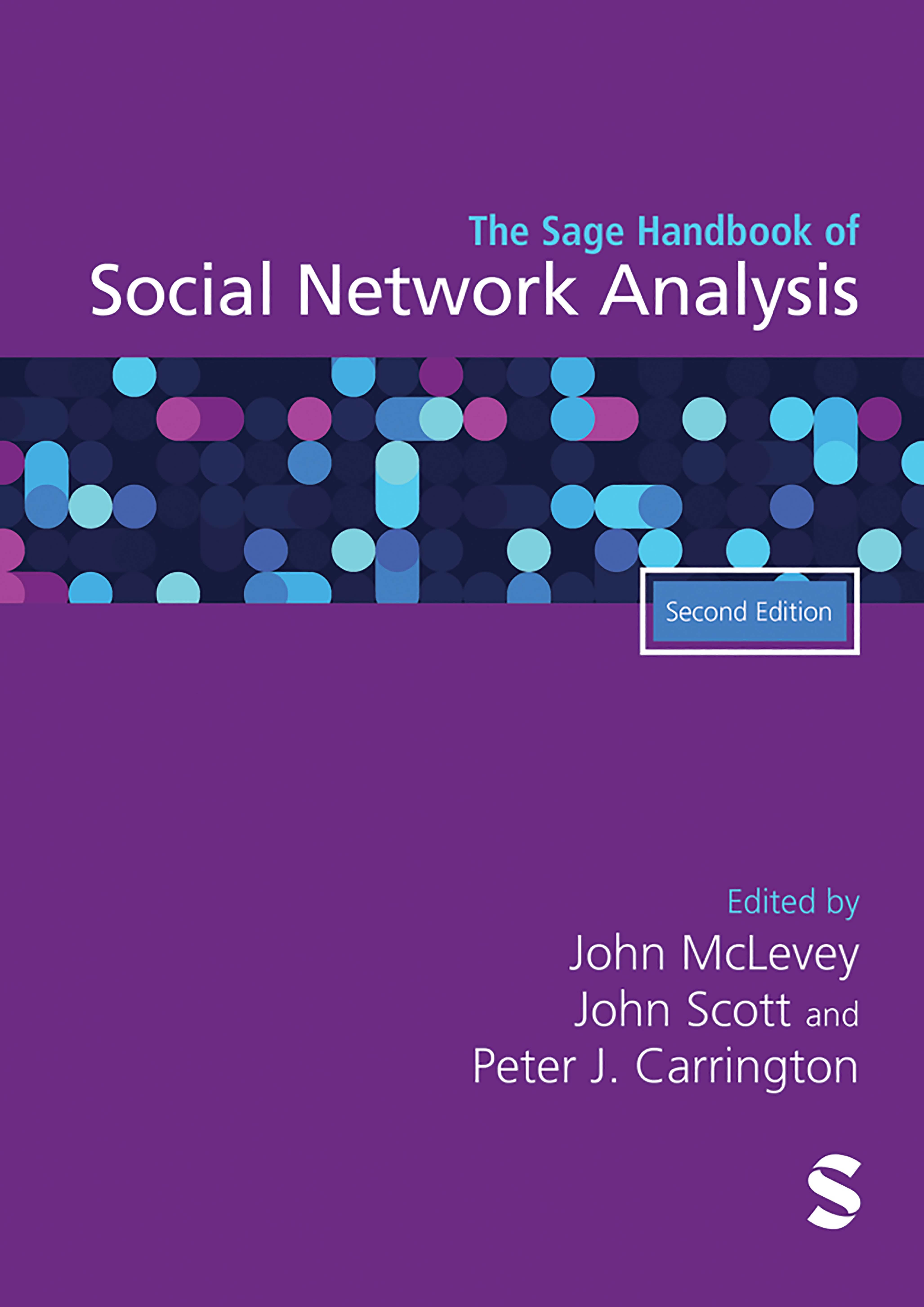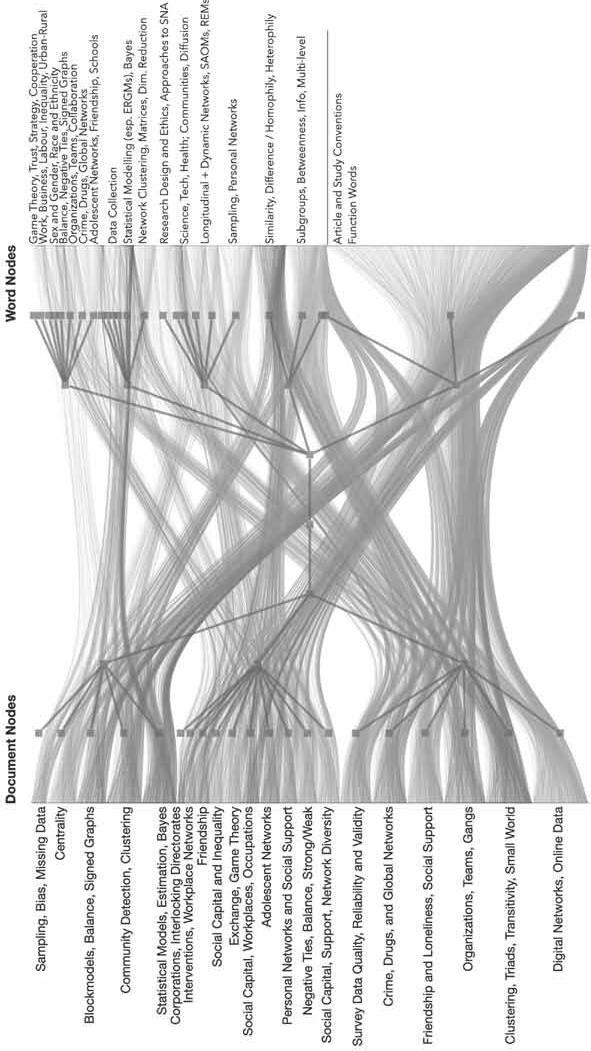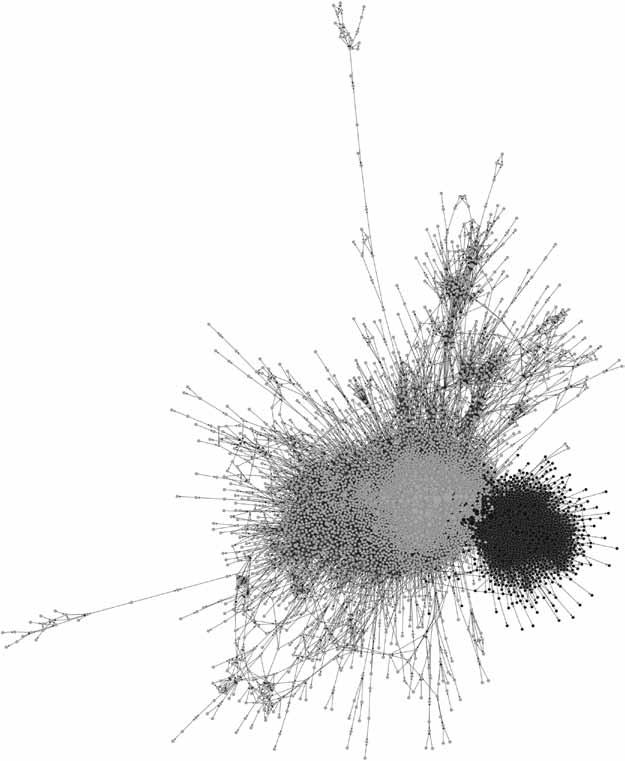The Sage Handbook of Social Network Analysis
Second Edition
This new edition of The Sage Handbook of Social Network Analysis builds on the success of its predecessor, offering a comprehensive overview of social network analysis produced by leading international scholars in the field.
Brand new chapters provide both significant updates to topics covered in the first edition, as well as discussing cutting edge topics that have developed since, including new chapters on:
• General issues such as social categories, computational social science, and signed graphs;
• Applications in contexts such as socio-ecological systems, environmental policy, gender, ethnicity, cognition and social media and digital networks;
• Concepts, methods such as centrality, blockmodeling, multilevel network analysis, dynamic and spatial analysis, data collection;
• Statistical models such as exponential random graph models, relational event models, stochastic actororiented models, generative models and latent space models, and beyond.
By providing authoritative accounts of the history, theories and methodology of various disciplines and topics, the second edition of The Sage Handbook of Social Network Analysis is designed to provide a state-of-the-art presentation of classic and contemporary views, and to lay the foundations for the further development of the area.
PART 1: GENERAL ISSUES
PART 2: APPLICATIONS
PART 3: CONCEPTS AND METHODS
Edited by
John McLevey
John Scott and
Peter J. Carrington
1 Oliver’s Yard
55 City Road
London EC1Y 1SP
2455 Teller Road
Thousand Oaks, California 91320
Unit No 323-333, Third Floor, F-Block
International Trade Tower Nehru Place
New Delhi – 110 019
8 Marina View Suite 43-053
Asia Square Tower 1
Singapore 018960
Editor: Umeeka Raichura
Editorial Assistant: Benedict Hegarty
Production Editor: Gourav Kumar
Copyeditor: Joy Tucker
Proofreader: Genevieve Friar
Indexer: KnowledgeWorks Global Ltd
Marketing Manager: Ben Griffin-Sherwood
Cover Design: Ginkhan Siam
Typeset by KnowledgeWorks Global Ltd
Printed in the UK
At Sage we take sustainability seriously. Most of our products are printed in the UK using responsibly sourced papers and boards. When we print overseas we ensure sustainable papers are used as measured by the Paper Chain Project grading system. We undertake an annual audit to monitor our sustainability.
Editorial Arrangement & Introduction © John McLevey, John Scott, Peter J. Carrington, 2024
Chapter 2 © Christina Prell and David R. Schaefer, 2024
Chapter 3 © Ronald Breiger and Robin Wagner-Pacifici, 2024
Chapter 4 © James A. Kitts, Helene Grogan and Kevin Lewis, 2024
Chapter 5 © Jan Fuhse and Ann Mische, 2024
Chapter 6 © Örjan Bodin, 2024
Chapter 7 © Tyler A. Scott, Mark Lubell and Gwen Arnold, 2024
Chapter 8 © Kayla de la Haye, 2024
Chapter 9 © Mario Diani, 2024
Chapter 10 © David Tindall, 2024
Chapter 11 © Elisa Bellotti, 2024
Chapter 12 © Rochelle Côté, 2024
Chapter 13 © Omar Lizardo, 2024
Chapter 14 © Sarah Shugars and Sandra González-Bailón, 2024
Chapter 15 © Matthew E. Brashears and Victoria Money, 2024
Chapter 16 © Donghyun Kang and James Evans, 2024
Chapter 17 © Marie Ouellet and Logan Ledford, 2024
Chapter 18 © Ian Kumekawa, 2024
Chapter 19 © Damon Centola, 2024
Chapter 20 © Thomas W. Valente, 2024
Chapter 21 © Anabel Quan-Haase, Lyndsay Foisey and Riley McLaughlin, 2024
Chapter 22 © Beate Völker, 2024
Chapter 23 © Lijun Song and Zhe Zhang, 2024
Chapter 24 © William K. Carroll, M. Jouke Huijzer and J.P. Sapinski, 2024
Chapter 25 © Christina Prell, James Hollway, Petr Matous and Yasuyuki Todo, 2024
Chapter 26 © M.G. Everett and S.P. Borgatti, 2024
Chapter 27 © James Moody and Peter J. Mucha, 2024
Chapter 28 © Lorien Jasny, 2024
Chapter 29 © Patrick Doreian, Anuška Ferligoj and Vladimir Batagelj, 2024
Chapter 30 © Pierson Browne, Tyler Crick and John McLevey, 2024
Chapter 31 © Brea Perry, Adam Roth and Mario Small, 2024
Chapter 32 © Emmanuel Lazega and Peng Wang, 2024
Chapter 33 © Johan Koskinen, 2024
Chapter 34 © Tom A.B. Snijders and Christian E.G. Steglich, 2024
Chapter 35 © Aaron Schecter and Noshir Contractor, 2024
Chapter 36 © Hardeep Kaur, Riccardo Rastelli, Nial Friel and Adrian E. Raftery, 2024
Chapter 37 © Filip Agneessens, 2024
Chapter 38 © Betina Hollstein, 2024
Chapter 39 © John R. Hipp, 2024
Chapter 40 © jimi adams and Miranda Lubbers, 2024
Chapter 41 © Robert W. Krause and Mark Huisman, 2024
Chapter 42 © Pierson Browne, Adam Howe, Yasmin KoopMonteiro, Yixi Yang and John McLevey, 2024
Apart from any fair dealing for the purposes of research, private study, or criticism or review, as permitted under the Copyright, Designs and Patents Act, 1988, this publication may not be reproduced, stored or transmitted in any form, or by any means, without the prior permission in writing of the publisher, or in the case of reprographic reproduction, in accordance with the terms of licences issued by the Copyright Licensing Agency. Enquiries concerning reproduction outside those terms should be sent to the publisher.
Library of Congress Control Number: 2023945081
British Library Cataloguing in Publication data
A catalogue record for this book is available from the British Library
ISBN 978-1-5297-7961-5
About the Contributors
jimi adams is Professor of Health and Behavioral Sciences at the University of Colorado Denver. His work focuses on examining social networks to understand how infectious diseases and novel ideas spread. He is the author of Gathering social network data (Sage, 2019).
Filip Agneessens is an Associate Professor at the Department of Sociology and Social Research, University of Trento. He has published on a diversity of topics related to social networks, including measures of centrality, statistical models, ego-networks and social support, two-mode networks, negative ties, multilevel networks and issues related to data collection. With Martin Everett, he was a guest editor for a special issue on ‘Advances in Two-mode Social Network Analysis’ in the journal Social Networks and, with Nick Harrigan and Joe Labianca, he guest-edited a special issue on ‘Negative and Signed Tie Networks’. Together with Steve Borgatti, Martin Everett and Jeff Johnson he co-authored the book Analyzing social networks with R (Sage, 2022).
Gwen Arnold is an Associate Professor in the Department of Environmental Science and Policy at University of California, Davis, where she co-directs the Center for Environmental Politics and Behavior. Her research interests concern energy policy, local governance, community resilience, policy entrepreneurship and theories of the policy process. She is an associate editor of Policy Studies Journal.
Vladimir Batagelj, PhD, is a Professor Emeritus of Discrete and Computational Mathematics from the University of Ljubljana, Slovenia. He is a Senior Researcher at the Department of Theoretical Computer Science of IMFM, Ljubljana, the Institute Andrej Marušič at University of Primorska, Koper, and NRU HSE International Laboratory for Applied Network Research, Moscow. His main research interests are in mathematics and computer science, combinatorics with emphasis on graph theory, algorithms on graphs and networks, combinatorial optimisation, algorithms and data structures, cluster analysis, symbolic data analysis, visualisation, social network analysis and applications of information technology in education. He is a co-author of the program Pajek for large network analysis and visualisation. He is an elected member of the International Statistical Institute. He co-authored books Generalized blockmodeling (Cambridge University Press, 2005), Exploratory social network analysis with Pajek (Cambridge University Press, 2005, 2011, 2018), Understanding large temporal networks and spatial networks (Wiley, 2014) and Advances in network clustering and blockmodeling (Wiley, 2020).
Elisa Bellotti is Senior Lecturer in Sociology and co-director of the Mitchell Centre for Social Network Analysis at the University of Manchester. She has published extensively on applications of social network analysis and mixed methods in sociological substantive fields, like criminal networks, scientific networks and personal networks. Her recent work focuses on gender aspects of social network formations and outcomes. She has written the book Qualitative networks: mixed methods in sociological research (Routledge, 2015) and co-authored the book Social network analysis for egonets (Sage, 2015).
Örjan Bodin is a Professor of Environmental and Sustainability Science at the Stockholm Resilience Centre at Stockholm University. He is studying different challenges and opportunities in governing and managing natural resources, and much of his research bridges the natural and social sciences. Together with Christina Prell, he edited the book Social networks and natural resource management: uncovering the social fabric of environmental governance (Cambridge University Press, 2011). In addition, he has contributed to over 100 publications that have appeared in top journals across a range of scientific disciplines.
Stephen P. Borgatti is the Gatton Endowed Chair of Management at the Gatton College of Business and Economics at the University of Kentucky. He has published extensively in management journals, as well as cross-disciplinary journals such as Science and Social Networks. He has published over 100 peerreviewed articles on network analysis, garnering more than 80,000 Google Scholar citations. With Martin Everett, Steve is co-author of UCINET, a well-known software package for social network analysis, as well as founder of the annual LINKS Center workshop on social network analysis. He is also a 2-term past President of INSNA (the professional association for network researchers) and winner of their Simmel Award for lifetime achievement.
Matthew E. Brashears is a Professor of Sociology at the University of South Carolina. His research focuses on linking cognition to social network structure, studying the effects of error and error correction on diffusion dynamics, and using ecological models to connect individual behaviour to collective dynamics. His work has appeared in the American Sociological Review, the American Journal of Sociology, Social Networks, Advances in Group Processes and Frontiers in Cognitive Psychology, among others. He has received grants from the National Science Foundation, the Defense Threat Reduction Agency, the Army Research Institute, the Army Research Office and the Office of Naval Research.
Ronald Breiger is a Regents Professor and Professor of Sociology at the University of Arizona. He works in the areas of social network methods and theory, networks and culture, mathematical models and measurement in cultural and institutional analysis. With Eric Schoon, David Melamed and other colleagues he is formulating an innovative approach to regression modelling built on recognising the duality (co-constitution) of cases and variables. With Robin Wagner-Pacifici and the late John Mohr he has been exploring possibilities for a ‘third way’ of text analysis of public national security strategy documents, in between automated and human-centred readings. In 2022 he was named an inaugural recipient of the Progress in Mathematical Sociology Award of the American Sociological Association Mathematical Sociology Section (shared with Ronald Burt and Harrison White).
Pierson Browne is a PhD candidate in the Department of Sociology at the University of Waterloo. His research focuses on Bayesian inference, social network analysis, digital games, player studies and principled data processing.
William K. Carroll’s research interests are in the political economy/ecology of corporate capitalism, social movements and social change, and critical social theory and method. Since 2015 he has co-directed the Corporate Mapping Project, an interdisciplinary initiative bringing scholars and activists together in research and knowledge mobilisation on the power and influence of fossil capital in Canada. He has been a member of the University of Victoria’s Sociology Department since 1981 and was the founding Director of UVic’s interdisciplinary programme in Social Justice Studies. Dr Carroll’s books include Regime of obstruction: how corporate power blocks energy democracy (AU Press, 2021; free download here: www. aupress.ca/books/120293-regime-of-obstruction/), The making of a transnational capitalist class (Zed, 2010), Organizing the 1%: how corporate power works (Fernwood, 2018, with J.P. Sapinski), Expose, oppose, propose: alternative policy groups and the struggle for global justice (Zed, 2016), A world to win contemporary social movements and counter-hegemony (ARP, 2016, with Kanchan Sarker), Corporate power in a globalizing world (Oxford University Press, 2010) and Corporate power and Canadian capitalism (UBC Press, 1986).
Damon Centola is the Elihu Katz Professor of Communication, Sociology and Engineering at the University of Pennsylvania, where he is Director of the Network Dynamics Group and Senior Fellow at the Leonard Davis Institute of Health Economics. Before coming to Penn, Damon was a professor at MIT, and prior to that he was a fellow at Harvard University. Damon is a leading scholar on social networks and behaviour change. His work has received numerous scientific awards, including the Goodman Prize for Outstanding Contributions to Sociological Methodology in 2011; the James Coleman Award for Outstanding Research in Rationality and Society in 2017; and the Harrison White Award for Outstanding
Scholarly Book in 2019. He was a developer of the NetLogo agent-based modelling environment, and was awarded a US Patent for inventing a method to promote diffusion in online networks. Damon is a fellow of the Center for Advanced Study in the Behavioral Sciences at Stanford University. Popular accounts of Damon’s work have appeared in the New York Times, Washington Post, Wall Street Journal, Wired, TIME, The Atlantic, Scientific American and CNN, among other outlets. His research has been funded by the National Science Foundation, the National Institutes of Health, the Robert Wood Johnson Foundation, the James S. McDonnell Foundation, the Templeton Foundation, the Hewlett Foundation and Facebook. Damon’s speaking and consulting clients include Amazon, Apple, Cigna, General Motors, Microsoft, Ben & Jerry’s, the US Army and the NBA, among others. He is a series editor for Princeton University Press and the author of How behavior spreads: the science of complex contagions (Princeton University Press, 2018), and Change: how to make big things happen (Little Brown, 2021).
Noshir Contractor is the Jane S. and William J. White Professor of Behavioral Sciences in the McCormick School of Engineering, the School of Communication and the Kellogg School of Management at Northwestern University. He investigates how social and knowledge networks form and perform. He is a Distinguished Scholar of the National Communication Association and a Fellow of the American Association for the Advancement of Science, the Association for Computing Machinery, the Network Science Society and the International Communication Association. He received the Simmel Award from the International Network for Social Network Analysis (INSNA), and the Lifetime Service Award from the Communication, Digital Technology, and Organization Division of the Academy of Management. He received the Distinguished Alumnus Award from the Indian Institute of Technology, Madras, where he received a Bachelor’s degree in Electrical Engineering. He has a PhD from the Annenberg School of Communication at the University of Southern California.
Rochelle Côté is currently an Associate Professor of Sociology at Memorial University of Newfoundland and Labrador, Canada. Dr Côté’s research and teaching explores the relationship between overarching institutions, sociocultural contexts, social networks, and ethnoracial inequality. Her research currently focuses on unpacking sources and consequences of ethnic and racial inequalities – from looking at the ways in which Indigenous people navigate their experiences of social mobility alongside connections to community and culture, to mapping and documenting the Indigenous history of cities, and impacts to ethnoracial network diversity and tolerance. Motivated by an interest in mixed methods and cross-national research, her work considers the experiences of Indigenous people, ethnic minorities and immigrants as they engage with society through participation in cultural, social and economic venues. Her work has appeared in such journals as Social Networks, Social Problems, Demography, Sociology, Journal of Sociology and American Behavioral Scientist, alongside various edited volumes.
Tyler Crick is a PhD candidate in Sociology at the University of Waterloo, where he is a member of Netlab under Dr John McLevey’s supervision. His current research interests are focused on misinformation, with an emphasis on its production, conditions of dissemination and social impact. This research involves large-scale data analysis using methods from social network analysis, machine learning, Bayesian modelling and natural language processing. He has published papers using computational social science methods in the Canadian Review of Sociology, Social Networks, The SAGE handbook of social media research methods (Sage, 2016) and The Routledge handbook of computational social science (Routledge, 2021). He has provided consulting in these areas for Cardiff University’s Crime and Security Research Institute, as well as a number of private consulting firms.
Mario Diani (PhD 1987, Turin) has been a Professor of Sociology at the University of Trento, Italy, since 2001. He also held chairs at the University of Strathclyde in Glasgow (1996–2001) and ICREAUniversitat Pompeu Fabra in Barcelona (2010–12). He has worked extensively on social movements as a particular form of network organising. Major works on this topic include Green networks (Edinburgh University Press, 1995), Social movements and networks (Oxford University Press, 2003, co-edited with
Doug McAdam), The cement of civil society (Cambridge University Press, 2015) and Multimodal political networks (Cambridge University Press, 2021, with D. Knoke, J. Hollway and D. Christopoulos).
Patrick Doreian’s (University of Ljubljana and University of Pittsburgh) work has been involved primarily with the generation of new methods for analysing networks and applying them in many empirical contexts. Studying signed networks and police academy networks are included. More recently, he has been heavily involved in studying the US Supreme Court and the large network of allies of the Koch Brothers as these units attempt to shape US policies and shape public opinion.
James Evans (PhD 2004, Stanford) is the Max Palevsky Professor of Sociology at the University of Chicago and the Santa Fe Institute. He directs the Knowledge Lab and the Computational Social Science programs at Chicago, with research focusing on the collective system of thinking and knowing, ranging from the distribution of attention and the origin of ideas to processes of agreement, evolving certainty and the texture of human and machine understanding. He is especially interested in innovation and the role that social and technical institutions play in collective cognition and discovery. He supports the creation of novel observatories for human understanding and action through crowd sourcing, information extraction, the use of distributed sensors, computationally driven experiments and surveys, and complementary AI. His work uses machine learning, generative modelling, social and semantic network representations to explore knowledge processes, scale up interpretive and field methods and create alternatives to current discovery regimes. His work has been published in Nature, Science, PNAS and top social and computer science journals.
Martin G. Everett, DPhil is Professor of Social Network Analysis and co-director of the Mitchell Centre for Social Network Analysis at the University of Manchester. He has published extensively on social network analysis, has published over 100 peer-reviewed articles and consulted with government agencies as well as public and private companies. With Stephen Borgatti, Martin is co-author of UCINET, a wellknown software package for social network analysis, and is co-editor of the journal Social Networks. He is also a past president of INSNA (the professional association for network researchers) and winner of their Simmel Award for lifetime achievement. He was elected an academician of the UK Academy of Social Sciences in 2004.
Anuška Ferligoj is Professor Emeritus at the University of Ljubljana and the scientific supervisor at the Laboratory for Applied Network Research at the NRU HSE in Moscow. Her research interests include multivariate analysis (clustering with constraints, multicriteria clustering) and social network analysis (blockmodelling, quality of network measurement). She has published over 100 papers, several book chapters and books. For the monograph co-authored with Patrick Doreian and Vladimir Batagelj, Generalized blockmodeling (Cambridge University Press, 2005), they obtained the Harrison White Outstanding Book Award 2007, given by the Mathematical Sociology Section at the American Sociological Association. She is a member of the European Academy of Sociology. In 2010, she received Doctor et Professor Honoris Causa at Eotvos Lorand University in Budapest.
Lyndsay Foisey is a doctoral candidate in Health Information Science (Faculty of Information and Media Studies and Faculty of Health Sciences) at Western University. She has authored over twenty peer-reviewed journal articles, book chapters, conference publications and white papers on health, digital technology and communications. She has received provincial and national-level awards for her doctoral work, including a federally funded grant to study public health messaging on social media during the Covid-19 pandemic in Canada. She has taught social media and health at the undergraduate level, as well as worked at research institutions and not-for-profit organisations across Canada.
Nial Friel is a Full Professor of Statistics at University College Dublin. He was previously a lecturer and then reader in statistics at the University of Glasgow. Prior to that he held post-doctoral positions at Queensland University of Technology, Cambridge University and Athens University of Economics and
Business. He was awarded a PhD in statistics from University of Glasgow in 1999. His research interests include Bayesian statistics; Monte Carlo methods; Statistical network analysis.
Jan Fuhse is Interim Professor of Sociology at Chemnitz University of Technology and Senior Lecturer (Privatdozent) at Humboldt University of Berlin (both in Germany). His research focuses on the theory of social networks, on social networks in inequality and interethnic relations, on constellations in political discourse and on the role of theory in the social sciences. Recent publications: Social networks of meaning and communication (Oxford University Press, 2022), ‘How can theories represent social phenomena?’ (Sociological Theory, 2022), ‘Analyzing social networks in communication: a mixed methods study of a political debate’ (Quality and Quantity, forthcoming), ‘Networks from culture: mechanisms of tieformation follow institutionalized rules in social fields’ (with Neha Gondal, Social Networks, forthcoming).
Sandra González-Bailón is the Carolyn Marvin Professor of Communication at the Annenberg School, University of Pennsylvania, where she directs the Center for Information Networks and Democracy. Her research analyses how networks shape exposure to political information and how online behaviours inform algorithmic forms of curation. Her empirical research spans areas that include political engagement; protest participation; the coordination of information campaigns; and the consumption and diffusion of political content. She is the author of the book Decoding the social world (MIT Press, 2017) and co-editor of The Oxford handbook of networked communication (Oxford University Press, 2020). She has a PhD in Sociology from the University of Oxford.
Helene Grogan is a sociology PhD student at the University of Massachusetts Amherst. Her research focuses on the sociology of health, disability and social movements, with an emphasis on archival and computational methods.
Kayla de la Haye is an Associate Professor of Population and Public Health Sciences at the University of Southern California (USC), and scientist at the USC Center for Economic and Social Research, in Los Angeles. She works to promote health and prevent disease by applying social network analysis and systems science to key public health issues. Her research focuses on family and community social networks to promote healthy eating, nutrition security and prevent non-communicable diseases like obesity. She also explores the role of social networks in how families, teams and coalitions solve complex problems. She currently serves as Vice President of the International Network of Social Network Analysis (INSNA) and, in 2018, she received the INSNA Freeman Award for significant contributions to the study of social structure. She holds a PhD in psychology from the University of Adelaide, Australia.
John R. Hipp is a Professor in the departments of Criminology, Law and Society, and Sociology at the University of California Irvine. His research interests focus on how neighbourhoods change over time, how that change both affects and is affected by neighbourhood crime, and the role networks and institutions play in that change. He approaches these questions using quantitative methods as well as social network analysis. He has published substantive work in such journals as American Sociological Review, Criminology, Journal of Quantitative Criminology, Social Forces, Social Problems, City and Community, Urban Studies and Journal of Urban Affairs. He has published methodological work in such journals as Sociological Methodology, Psychological Methods and Structural Equation Modelling.
Betina Hollstein is Chair of Sociology at the University of Bremen. Her work is centred around personal networks, social inequality and methods of network research. She is especially interested in understanding network dynamics across the life course and network effects – for example, how personal networks affect the transition from school to work. In studying network processes and mechanisms, Betina Hollstein champions the use of qualitative approaches and mixed methods research designs (Cambridge University Press, 2014, ed. with Silvia Dominguez). Current projects tackle visual methods for network data collection and innovative combinations of qualitative methods and computational social sciences.
James Hollway is Associate Professor of International Relations and Political Science at the Graduate Institute of International and Development Studies, Geneva, and principal investigator of PANARCHIC. His research develops multilevel and dynamic network theories, methods, data and software to help understand the causes and consequences of actors’ institutional and policy choices in empirical settings such as fisheries, freshwater, health and trade. His book Multimodal political networks , together with David Knoke, Mario Diani and Dimitris Christopoulos, was published with Cambridge University Press in 2021, with other networks pieces appearing in, among others, Network Science , Social Networks , Sociological Methodology and the Journal of Conflict Resolution.
Adam C. Howe completed his PhD studying climate change policy networks at the University of British Columbia in Vancouver. His research interests include environmental sociology and climate change governance, social movements and activism and computational social science. He has published on topics such as investigating the structural mechanisms that give rise to and shape policy networks, and how social structures (particularly policy networks) and media intersect to shape social influence and climate change governance. His work appears in academic journals including Social Networks, Sociological Perspectives and in the edited book Protest public relations: communicating dissent and activism (Routledge, 2020).
M. Jouke Huijzer is a PhD researcher at the Vrije Universiteit Brussel, Department of Political Science. He has an interest in the politics and contestation of contemporary capitalism. His research focuses on corporate and political elites and their ideas. He hopes his work will contribute to an understanding of how to foster social emancipation and bring about political change.
Mark Huisman is an Assistant Professor at the Department of Sociology of the University of Groningen. His previous work involved statistical methods for missing data, especially multiple imputation, both for survey and network data. His current research interests are latent variable path models and the analysis of causal relations.
Lorien Jasny is a computational social scientist in the Department of Politics at the University of Exeter. Her work focuses on the role of social networks in questions of public engagement, environmental management and community health. In her research Lorien explores two related themes – how the structure and dynamics of interorganisational networks affect policy change, and how the structure and dynamics of social and belief networks affect behavioural change. Substantively, she studies how people try to bring about societal change in response to political and environmental concerns. Methodologically, the need to grapple with these often complex phenomena requires the use and development of techniques for handling large, dynamic and relational datasets.
Donghyun Kang is a PhD candidate in Sociology and a member of the Knowledge Lab at the University of Chicago. His academic interest centres on advancing our understanding of social conditions and processes shaping the genesis, diffusion and demise of ideas and practices through which science and human knowledge evolve. He particularly seeks to extend and revisit insights from social studies of science and the sociology of knowledge, using statistical approaches and computational techniques ranging from natural language processing to network embedding models.
Hardeep Kaur is a PhD candidate in the School of Mathematics and Statistics at University College Dublin, Ireland. Her research focuses on developing new statistical models for complex network data. She is currently developing new models for the analysis of multivariate time series using latent complex network frameworks. Her study emphasises the significance of comprehending and interpreting the temporal and contemporaneous relationships among the network’s constituent components.
James Kitts is Professor of Sociology and Founding Co-Director of the Computational Social Science Institute at the University of Massachusetts. He earned his PhD from Cornell University in 2001 and has held faculty appointments at Columbia University, Dartmouth College and the University of Washington. Bridging computational social science, sociology and public health, he has worked on methods to detect social interaction from audio signals using wearable sensors, has analysed the dynamics of patient transfers across hospitals, has modelled opinion polarisation on dynamic networks and now co-directs an NIH-funded longitudinal study of adolescent social networks and health behaviour. His work appeared in American Sociological Review, American Journal of Sociology, Social Forces, Social Networks and Demography. jameskitts.com/
Yasmin Koop-Monteiro is currently a PhD candidate in Sociology at the University of British Columbia (Vancouver, Canada). Her research interests include social network analysis, social movements and environmental sociology, with a special interest in human–nonhuman interactions. Yasmin’s PhD thesis explores various factors believed to promote participation in animal rights advocacy, and considers how animal rights activists’ social ties or encounters with animals (wild, companion and/or farmed) may contribute to engagement in low-, medium- and high-risk/cost activism.
Johan Koskinen is Lecturer in Statistics at Stockholm University, having previously held positions at the universities of Melbourne, Oxford and Linköping. He develops statistical models and inference for social networks and often works in close collaboration with subject area experts to infer underlying network processes for empirical data, preferably within a Bayesian framework. Together with colleagues in Melbourne he edited the 2013 book on Exponential random graph models (Cambridge University Press, 2012), which was awarded the Harrison White Book Award. He has contributed to the publicly available programs MPNet and RSiena, and has been active in delivering training in network analysis across the world. Of particular interest to him is imperfectly observed network data and computational methods for networks on different types of ties and nodes, in space and across time.
Robert W. Krause is an Assistant Professor of Management at the Gatton College Business and Economics at the University of Kentucky. He wrote his PhD thesis on ‘Multiple imputation for missing network data’ and has published several papers and tutorial articles on how to handle missing network data. His research focuses on developing, implementing and testing better missing data treatments in Bayesian ERGMs and Stochastic Actor-Oriented Models. He is a co-author of the Bergm package in R for the estimation of Bayesian ERGMs and regularly writes scripts and provides support for users of the RSiena package for the estimation of SAOMs. His applied work is varied and covers networks such as school classes, leadership structures in students and professionals, advice-seeking among former and graduate students, or board interlocks.
Ian Kumekawa is a Postdoctoral Prize Fellow in Economics, History and Politics at the Center for History and Economics at Harvard University and the coordinator of the Visualizing Historical Networks Project at Harvard. His research concerns the history of economic thinking, and networked histories of imperial statecraft and global capitalism in the 19th and 20th centuries. His book, The first serious optimist: A.C. Pigou and the birth of welfare economics (Princeton University Press, 2017), was a co-winner of the Joseph Spengler Prize and his work has appeared or is forthcoming in the Historical Journal, Journal of Modern History and Modern Intellectual History. His current projects focus on state capture and offshore capitalism in the 20th century.
Emmanuel Lazega is Professor of Sociology at Sciences Po, Paris, and a member of the Centre of the Sociology of Organizations (CSO-CNRS). His research interests are in the social rationality, relational infrastructures (single level or multilevel) and social mechanisms that help members of organisations manage the dilemmas of their collective agency. His most recent books are Bureaucracy, collegiality and social change: redefining organizations with multilevel relational infrastructures (Edward Elgar, 2020)
and an edited volume with Tom A.B. Snijders and Rafael P.M. Wittek and twenty contributors, Social networks and social resilience (Edward Elgar, 2022). His work can be downloaded from www.elazega.fr
Logan Ledford is a doctoral candidate in criminal justice and criminology at Georgia State University. His interests include police stress and job satisfaction, police legitimacy, police networks and crime networks generally.
Kevin Lewis is an Associate Professor of Sociology at the University of California, San Diego. His research focuses on the formation and evolution of social networks, the principles of human interaction that produce global network patterns and the implications of these processes for the genesis and reproduction of inequality. To address these topics, he has analysed a number of large-scale network datasets –spanning topics from online dating to internet activism to college students’ behaviour on Facebook – and his work has been published in a variety of sociological and interdisciplinary journals.
Omar Lizardo (He/Him) is the LeRoy Neiman Term Chair Professor in the Department of Sociology at the University of California, Los Angeles. He studies culture, cognition, networks, consumption, institutions, organisation and social theory. His work has appeared in such journals as American Sociological Review, Social Forces, Sociological Theory, Theory and Society and Social Networks. He currently serves on the editorial board of Social Forces, Sociological Theory, Sociological Forum, Journal for the Theory of Social Behaviour and Poetics. He is also a member of the Board of Reviewing Editors for the journal Science and an associate editor for Discover Data
Miranda Lubbers is Professor in Social and Cultural Anthropology at the Autonomous University of Barcelona (Spain) and Director of the COALESCE Lab. She is an elected Acadèmia fellow of the Catalan Institution for Research and Advanced Studies (ICREA) and elected fellow of the European Academy of Sociology. Her research concerns the networked mechanisms of social cohesion, social exclusion and polarisation. Lubbers was awarded the European Research Council’s Advanced Grant for the project ‘A network science approach to social cohesion in european societies’ (2021–6) and her other research projects are funded by the Volkswagen Foundation and the Spanish Ministry of Science and Innovation.
Mark Lubell is a Professor of Environmental Science and Policy at the University of California at Davis, where he also co-directs the Center for Environmental Policy and Behavior. He holds a PhD in Political Science from State University of New York at Stony Brook. Dr Lubell’s research applies network theory and analysis to cooperation problems in the context of environmental governance. His research is published in political science, public policy, public administration and interdisciplinary environmental journals.
Petr Matous is Associate Professor in the School of Project Management, Faculty of Engineering, University of Sydney, and serves as Associate Head of School (Research) and Associate Dean (Indigenous Strategy and Service) at the University. He received his PhD in 2007 at the University of Tokyo where he previously spent most of his academic career. Dr Matous’s research revolves around networks and interventions in socioenvironmental systems, searching for ways to leverage social networks in rural and marginalised communities for sustainability and resilience to disasters. He also enjoys consulting work for development organisations in South-East Asia. Petr teaches innovation, sustainability and SNA and holds the University of Tokyo Presidential Award and the University of Sydney Vice Chancellor’s Award for Excellence.
Riley McLaughlin is a Graduate Research Assistant at Western University. She has an MA in Research for Policy and Evaluation and a BA with an honours specialisation in Sociology. Riley received Western’s Undergraduate Summer Research Internship fellowship award to work with the Sociodigital Media Lab and now continues her work there. She also has experience working at various non-profit organisations,
with a focus on equity, diversity and inclusion as well as policy development and evaluation. Much of her work surrounds social media use, digital literacy, systemic inequality and equitable policy making.
Ann Mische is an Associate Professor of Sociology and Peace Studies at the University of Notre Dame. Currently, she is working on a book on the role of futures thinking and foresight methodologies in social and political change efforts focused on democracy, development, peacebuilding and climate change. She is also working on a separate project on the political pathways of anti-partisan protest cycles in the global protest wave since 2008. Her first book, Partisan publics: communication and contention across Brazilian youth activist networks (Princeton University Press, 2008) examined civic and political networks of Brazilian youth activism during the re-democratisation period. She has also written theoretical articles on agency, culture, networks, temporality and social interaction. Her articles have appeared in the American Journal of Sociology, the Annual Review of Sociology, Sociological Forum, Social Research, Poetics and Theory and Society.
Victoria Money is a PhD candidate in the Sociology Department at the University of South Carolina. She is interested in how multiplex relationships and stigmatised identities impact network activation and structure, and how this relationship impacts health outcomes (physical and mental health, and cognitive flexibility). Her primary interest is in assessing how socially disadvantaged groups can optimise networks to attain long-term adherence to health-promoting behaviours. She has newly published work in Social Psychology Quarterly.
James Moody is Professor of Sociology at Duke University. He has published extensively in the field of social networks, methods and social theory with over 70 peer-reviewed papers and extensive consultation with industry and DoD and research grants from NSF, NIH and private foundations. His work focuses on the network foundations of social cohesion and diffusion, with an emphasis on building tools and methods for understanding dynamic social networks. He has published network papers on organisational performance, school racial segregation, adolescent health, disease spread, economic development and the development of scientific disciplines (among others). He is winner of INSNA’s Freeman Award for scholarly contributions to network analysis and was named a Thomson Reuters ‘Highly Cited Researcher’. He is founding director of the Duke Network Analysis Center, former editor of the Journal of Social Structure and co-founding editor of the open access journal Socius. people. duke.edu/˜jmoody77/
Peter J. Mucha is the Jack Byrne Distinguished Professor in Mathematics at Dartmouth College. After a PhD in Applied and Computational Mathematics from Princeton and an applied mathematics instructorship at MIT, he held faculty positions at Georgia Tech and UNC–Chapel Hill. His current research includes a variety of topics in the mathematics of networks and data science, including network representations of data, community detection, network classification problems and modelling dynamics on and of networks. His group’s activities are largely driven by interdisciplinary collaboration, applying tools of network analysis and data science across the physical, life and social sciences.
Marie Ouellet is an Assistant Professor in the Department of Criminal Justice and Criminology at Georgia State University. Her research focuses on delinquent groups, including how they emerge and evolve and how networks structure this process. She was recently awarded a National Science Foundation Early CAREER award to better understand how informal and formal relationships within police departments shape the diffusion of officer behaviours and attitudes.
Brea Perry is the Allen D. and Polly S. Grimshaw Professor in the Department of Sociology and Associate Director of the Irsay Family Institute for Sociomedical Sciences at Indiana University. Her areas of research include social networks, biosociology, social inequalities, ageing and medical sociology and mental health. In the social networks domain, she focuses largely on theory and methodology related to personal social networks (e.g., egocentric networks) and network dynamics. Brea was a recent National
Academy of Medicine Emerging Leaders in Health and Medicine Scholar (2019–22) and her work has been funded by NIH, NSF, the Russell Sage Foundation and the Spencer Foundation.
Christina Prell is an Associate Professor at the Faculty of Spatial Sciences at the University of Groningen. Her research focuses on the intersection of social networks and the environment. On the global scale, she studies how trade networks perpetuate climate change impacts and create winners and losers along global supply chains. On a more local or regional scale, she considers the role social networks play in developing adaptive strategies and/or shaping perceptions of climate change. She has published 40+ articles in peer-reviewed journals, and two books on the topic of social networks, one being a sole-authored book entitled, Social Network Analysis: History, theory, and methodology (Sage). Christina was a recent Fulbright-Austrian Scholar at the University of Klagenfurt, where she taught courses on coupled systems and social network analysis.
Anabel Quan-Haase is a Full Professor of Sociology and Information and Media Studies at Western University and Rogers Chair in Studies in Journalism and New Information Technology. She is the author of Technology and society (Oxford University Press, 2020), co-author of Real-life sociology (Oxford University Press, 2021), co-editor of the Handbook of social media research methods (Sage, 2022), and co-editor of the Handbook of computational social science (Routledge, 2022). Dr QuanHaase has published over 100 peer-reviewed articles, book chapters and conference proceedings. She is past chair of the Communication, Information Technology and Media Sociology section of the American Sociological Association and past president of the Canadian Association for Information Science. Through her policy work she has cooperated with organisations such as the Benton Foundation, Canada’s Digital Policy Forum, Federal Communications Commission (FCC), Library and Archives Canada and Media Smarts.
Riccardo Rastelli is Assistant Professor in Statistics at the School of Mathematics and Statistics, University College Dublin, Ireland. His work focuses on computational statistics, Bayesian statistics, biostatistics and how these topics intersect with the statistical analysis of network data.
Adrian E. Raftery is the Boeing International Professor of Statistics and Sociology, and an Adjunct Professor of Atmospheric Sciences at the University of Washington. He develops new statistical methods for problems in the social, environmental and health sciences. An elected member of the US National Academy of Sciences, he was identified as the world’s most cited researcher in mathematics for the decade 1995–2005 by Thomson-ISI. He has supervised 32 PhD graduates, of whom 21 hold or have held tenure-track university faculty positions.
Adam R. Roth is Assistant Professor of Sociology at Oklahoma State University. His research addresses the importance of social context by exploring the types of communities, social networks and families within which people are embedded. His recent work has appeared in Social Networks, Social Science and Medicine and Socius and has been funded by the National Institutes of Health.
J.P. Sapinski is Associate Professor of Environmental Studies at Université de Moncton, located in Mi’kma’ki, the unceded land of the Mi’kmaq First Nation, in New Brunswick, Canada. He is interested in how the structures of capitalism and corporate power mediate the social metabolism between human societies and the ecosphere, and how we can transform and decolonise this relationship to make it just and sustainable.
David R. Schaefer is Professor of Sociology at the University of California, Irvine. His research investigates network formation and evolution, and their consequences for individual behaviours, identity and well-being. Recent projects have focused on ethnic-racial identity development among youth, how activity foci structure networks and how new network entrants develop relationships. He has focused predominantly on students in school settings (preschool, middle and high schools, college) and individuals
incarcerated in prison. He was awarded the 2012 Freeman Award for significant contributions to the study of social structure by the International Network for Social Network Analysis.
Aaron Schecter is an Assistant Professor of Management Information Systems at the University of Georgia Terry College of Business. His research focuses on patterns of interaction among people in small groups, in online communities and through digital artefacts. He uses network methods, particularly relational event modelling, to identify these patterns and link them to different forms of performance. Current research interests include algorithmic decision making, human-algorithm teamwork and combining machine learning with social network data.
Tyler A. Scott is an Associate Professor in the Department of Environmental Science and Policy at the University of California, Davis (UCD), and co-director of the UCD Center for Environmental Policy and Behavior. Scott’s research concerns the use of science in policy decisions, organisational strategy and innovation (particularly related to infrastructure), and coordination in complex institutional settings. His current research is supported by the US National Science Foundation and the US Department of Agriculture.
Sarah Shugars is an Assistant Professor of Communication at Rutgers University. Their research focuses on how everyday people talk about, engage with and collectively shape the modern world around them. Bringing together computational communication and deliberative democracy, they develop new text and network methods to examine the relational nature of public life, the linguistic modes through which people express themselves, and the technological affordances which shape digital discourse.
Mario L. Small is Quetelet Professor of Social Science at Columbia University. An elected member of the National Academy of Sciences, the American Academy of Arts and Sciences and the American Academy of Political and Social Sciences, Small has published award-winning articles, edited volumes and books on topics such as urban poverty, personal networks and the relationship between qualitative and quantitative methods. His latest books include Someone to talk to: how networks matter in practice (Oxford University Press, 2019) and the co-edited Personal networks: classic readings and new directions in egocentric analysis (Cambridge University Press, 2021).
Tom A.B. Snijders is Emeritus Professor of Statistics and Methodology in the Social Sciences at the University of Groningen and Emeritus Fellow of Nuffield College, University of Oxford. His research concentrates on social network analysis and multilevel analysis. His work on developing statistical methodology for network dynamics is implemented in the software package RSiena (Simulation Inference for Empirical Network Analysis) in the statistical system R. With Roel J. Bosker he wrote Multilevel analysis; an introduction to basic and advanced multilevel modelling (Sage, 2nd ed., 2012). Combining these two research strands, together with Emmanuel Lazega he edited Multilevel network analysis for the social sciences: theory, methods, and applications (Springer, 2016).
Lijun Song is an Associate Professor of Sociology and Medicine, Health and Society at Vanderbilt University. Her major research interests include social networks, medical sociology, mental health, social stratification (gender/sexuality, race/ethnicity and class), social psychology, marriage and family, and comparative historical sociology. Her work has appeared in such journals as Social Forces, Journal of Health and Social Behavior, Society and Mental Health, Social Psychology Quarterly, Social Science and Medicine, Social Networks, Sociological Perspectives, American Behavioral Scientist and Chinese Sociological Review. Her scholarship has been supported by the National Institutes of Health, the Andrew W. Mellon Foundation, the Ford Foundation and the Chiang Ching-kuo Foundation for International Scholarly Exchange. She has received two publication awards from the American Sociological Association: one from the Section on Asia/Asian America and the other from the Section on Sociology of Mental Health.
Christian E.G. Steglich is Associate Professor at the Sociology Department of the University of Groningen and Senior Lecturer at the Institute for Analytical Sociology of Linköping University. His published research focuses on statistical inference for social networks, in particular social influence processes. Current research interests are the modelling of macro- and meso-level entities by micro-level model specifications, and the analysis of networks derived from non-research data collection, such as population registers and social media.
David Tindall is a Professor in the Department of Sociology, at the University of British Columbia. He earned his PhD from the University of Toronto where he studied with Bonnie Erickson and Barry Wellman. A primary focus of his research has been upon contention over environmental issues. He has developed an ego social network model of micromobilisation for collective action related to environmentalism. He has also published extensively on climate change policy and discourse networks. His current research examines the role of social networks in facilitating action to address climate change, and compares and contrasts the roles of virtual and non-virtual social network ties. He has published numerous times in the journal Social Networks, and recently co-edited a special issue of the journal on social networks and anthropogenic climate change. Among numerous other publications, he is the lead author on ‘Influence of social ties to environmentalists on public climate change perceptions’ in the journal Nature Climate Change
Yasuyuki Todo gained a PhD in Economics from Stanford University and has been a Professor at the Graduate School of Economics, Waseda University, Tokyo since 2014, after serving as the Department Head at the Department of International Studies, the University of Tokyo. His research fields are international economics, development economics and applied micro-econometrics, currently focusing on the role of social and economic networks in economic growth and resilience based on firm- and householdlevel data from various countries. He has published more than 60 academic papers in refereed journals including Nature Sustainability, Ecological Economics, Research Policy and World Development
Beate Völker is the scientific director of the Netherlands Institute for the Study of Crime and Law Enforcement (NSCR) and Professor of Human Geography (Utrecht University). Her research interests focus on social networks, community and social capital, how people build such circles, whether and how they benefit, how they change through time and how they fail. She studied networks in various social contexts such as neighbourhoods, hospitals, prisons and work organisations. Her work is published in, among others, Social Networks, Network Science, Advances in Life Course Research, European Sociological Review and Social Forces
Thomas W. Valente is a Professor in the Department of Population and Public Health Sciences, Keck School of Medicine, at the University of Southern California. He is the author of Social networks and health: models, methods, and applications (Oxford University Press, 2010); Evaluating health promotion programs (Oxford University Press, 2002); Network models of the diffusion of innovations (Hampton Press, 1995) and over 250 articles and chapters on social networks, behaviour change and programme evaluation. Valente uses social network analysis, health communication and mathematical models to implement and evaluate health promotion programmes. He is currently working on specifications for network models of diffusion and contagion with the R package NetdiffuseR. Valente is also well-known for his work developing network models of programme implementation and network interventions. Valente earned his BS in Mathematics from the University of Mary Washington, his MS in Mass Communication from San Diego State University and his PhD from the Annenberg School for Communication at USC. From 1991 to 2000 he was at the Bloomberg School of Public Health, Johns Hopkins University; in 2008, he was a Visiting Senior Scientist at NIH (NHGRI) for six months; and in 2010–11 he was a Visiting Professor at the École des Haute Études en Santé Publique (Paris/Rennes). Valente is co-editor (with Martin Everett) of Social Networks, and on the editorial board of the Journal of Health Communication: International Perspectives. Valente has received the Simmel Award from INSNA and the Rogers award from APHA; and mentoring awards at USC and JHU.
Robin Wagner-Pacifici is a University Professor at The New School. She has written five books on social, political and violent conflict and its termination. She is the author of: The art of surrender: decomposing sovereignty at conflict’s end (University of Chicago Press, 2006); Theorizing the standoff: contingency in action (Cambridge University Press, 2000); Discourse and destruction: the city of Philadelphia vs MOVE (University of Chicago Press, 1994); The Moro morality play: terrorism as social drama (University of Chicago Press, 1986) and, most recently, What is an event? (University of Chicago Press, 2017). An ongoing collaboration analysing official national security texts draws from both hermeneutic and computational approaches to textual analysis has generated several publications, including the Poetics journal article, ‘Graphing the grammar of motives in US national security strategies: cultural interpretation, automated text analysis and the drama of global politics’ (co-authored with John W. Mohr, Ronald L. Breiger and Petko Bogdanov).
Peng Wang is an Associate Professor of Innovation Studies at the Centre for Transformative Innovation, Swinburne University of Technology. His research focuses on the development and applications of statistical models for social network structure and the associated outcomes. He leads the design and implementation of the MPNet suite of software packages for modelling multiplex and multilevel networks. He has publications in the research fields of public health, education, management, social-ecological systems, interlocking directorates, public policy and social network intervention evaluations. He serves on the Board of the Australian Network of Social Network Analysis (ANSNA) and was the president of ANSNA in 2022. He received the INSNA Freeman Award for significant contributions to the study of social structure in 2022.
Yixi Yang is a PhD candidate in the Department of Sociology at Memorial University of Newfoundland and Labrador, Canada. Her research interests include climate change communication, social networks, environmental sociology and environmental governance and movement in China.
Zhe Zhang is a PhD student in the Department of Sociology at Vanderbilt University. His research focuses on the social determinants of health and health disparities throughout the life course, with a particular interest in the roles of social relationships and social networks, stress/adversity and social/political contexts.
Introduction
John Scott, John McLevey and Peter Carrington
This new edition of The SAGE handbook of social network analysis aims to build on the success of its predecessor, bringing together in one place a comprehensive overview of social network analysis produced by leading international scholars in the field. We present authoritative accounts of its history, theories and methods, and a wide-ranging review of the various disciplines and topics to which it has made important contributions. Most of the topics covered in the first edition are included here, but in thoroughly revised or new chapters, many by new authors. We have also included chapters on a number of new topics that have experienced significant development since the first edition appeared, in order to ensure that the volume is completely up to date and so continues to meet the needs and expectations of our readers. In what follows, we provide a high-level overview of the development and growth of social network analysis and discuss several ideas that are foundational to the field.
The Development of Social Network Analysis
The idea of social structure has been central to sociological thought from its earliest days, but it was not until the early twentieth century that the
idea of the social network began to be used as a metaphor in sociological analysis to represent the features of social structures.1
This was, perhaps, especially marked in German sociology, where there was a concern to understand the complex interweaving of social relations into ‘figurations’ and ‘webs’ of connections. Georg Simmel argued that ‘society merely is the name for a number of individuals connected by interaction’ (1950 [1917], p. 10), and that the task of sociology is to investigate the forms, or structure, of those interactions through ‘geometrical abstraction’ (Simmel, 1950[1917], pp. 21–22). He and his followers developed a ‘social geometry’ that emphasised the formal properties of these patterns of connection and introduced a novel terminology that referred to ‘points’ and ‘lines’ to understand actors and their social relations.
These formal ideas were first systematised by Helen Bott (1928), Jacob Moreno (1934) and Kurt Lewin (1936) in their studies in social psychology and psychotherapy. They were concerned with how the structures of small groups influenced the perceptions and action choices of their individual members. To this end, they treated a group as a ‘field’ or ‘space’ of activity that could be explored mathematically. Moreno and Helen Jennings referred to this approach as ‘sociometry’, or ‘psychological geography’ – the measurement
and mapping of social relations – and invented the ‘sociogram’ as a way of visually representing social networks as patterns of points and lines. Sociometric investigations were undertaken in education (Jennings, 1948; Gronlund, 1959) and community studies (Lundberg & Lawsing, 1937; Lundberg & Steele, 1938). Later work in social psychology developed this as ‘group dynamics’ (Cartwright & Zander, 1953; Harary & Norman, 1953), an approach that was furthered at the University of Michigan and at the Tavistock Institute in London.
George Lundberg’s insights into community relations had a wider impact through the work of Lloyd Warner in the studies, undertaken with Elton Mayo, of the Hawthorne electrical works in Chicago (Roethlisberger & Dickson, 1939). The Hawthorne researchers were inspired by the sociometric studies in seeking visual representations of social relations, but they were also directly influenced by the electrical wiring diagrams used in the Hawthorne factory and saw wiring networks as a model for representing group relations. Warner built on this early research in investigations into the community structures of American towns and cities. Influenced by the work of the British anthropologist Alfred Radcliffe-Brown, Warner looked at the structure of group relations in large communities and used network diagrams to represent their social structures. In his study of the New England town of Newburyport, carried out between 1930 and 1935, Warner presented large-scale community relations in matrix form, showing that group relations could be represented in mathematical terms and that these mathematical structures could be transformed into a visual representation. Central to Warner’s concerns was an exploration of the formation of ‘cliques’ within large urban social networks (Warner & Lunt, 1941). In a justly famous commentary, George Homans (1950) used these matrix methods to re-analyse a small clique of women studied by Warner in the southern town of Natchez.
A crucial advance in social network analysis took place at the University of Manchester in the 1950s. A group of sociologists and social anthropologists working on African and European communities, and critical of the mainstream emphasis in American sociology on consensus and harmony, sought to place conflict and division at the centre of their analyses. They were strongly influenced by the ‘structuralist’ view of society that had been expounded by Radcliffe-Brown since the 1920s, his public lectures delivered in 1937 and 1940 referring explicitly to the ‘network of social relations’ and its ‘social morphology’ (RadcliffeBrown, 1940, 1957). Working closely with the Manchester scholars, John Barnes and Elizabeth
Bott allied this approach with the group dynamics being developed at the Tavistock Institute and with the work of Warner. In a Norwegian study, Barnes (1954) proposed that the metaphor of the network of relations be taken seriously as a way of exploring the warp and weft of community relations, and in a study of kinship in London, Bott (1955, 1956) employed ideas of connectedness and density in urban kinship relations. Under the influence of a systematic study by Siegfried Nadel (1957), the developing Manchester work on African communities was reported by Clyde Mitchell (1969b), who also provided one of the earliest summaries of a formal social network methodology (1969a). The role of kinship in social cohesion has been considerably extended and elaborated since those early works (White, 2011).
Simultaneously with the work of Mitchell and his associates was the work of a group of American researchers led by Harrison White, who had also begun to develop and apply formal, mathematical methods for social network analysis. Building on the work of Claude Lévi-Strauss (1969 [1949]) in collaboration with André Weil, White (1963a) used algebra to represent kinship structures. When White moved from Chicago to Harvard University, he formed a large and dynamic group of students and associates to develop a paradigm for network analysis (see Mullins, 1973, Chapter 10). These researchers included Joel Levine’s (1972) work on corporate power as a multidimensional field, Nancy Lee’s (1969) research on the role of communication networks in helping American women find doctors willing to perform an abortion prior to Roe v. Wade, Mark Granovetter’s (1973, 1974) comparison of the role of ‘strong’ and ‘weak’ ties in searches for employment opportunities and Nick Mullins’ (1973) network analysis of mid-20th-century American sociology. White himself worked with various colleagues on algebraic methods for representing and analysing systems of social positions and roles (Lorrain & White, 1971; Boorman & White, 1976; White et al., 1976). This group constituted a new generation of social network researchers who helped to spread social network analysis across the globe. White went on to formalise his approach in a classic, but complex text (2008; see also Azarian 2005).
One of the principal areas in which social network analysis has been applied is the investigation of corporate power and interlocking directorships (Carroll et al., this volume). Early studies by Paul Sweezy (1939[1953]) and others had adopted ad hoc techniques for drawing network diagrams of board-level connections, but it was not until the 1960s and 1970s that these suggestions were furthered as a result of the technical advances made by White and his associates. Joel Levine (1972)
documented the clusters formed by particular banks and their directors, and a path-breaking paper by Jim Bearden and his colleagues (2002 [1975]) used the idea of centrality to explore the power and influence of banks in the American corporate world. Elsewhere, work led by Rob Mokken and Frans Stokman in the Netherlands (Helmers et al., 1975) became the basis for an investigation of transnational patterns (Fennema, 1982) and an international comparative investigation (Stokman et al., 1985; and see Scott & Griff, 1984). This was extended into a comparative investigation of intercorporate shareholding networks (Scott, 1986) and led to numerous studies in a variety of societies (see the reviews in Scott, 1997, and the comparative study edited by David & Westerhuis, 2014).
Another important area of application has been the investigation of community structure. Rooted in Warner’s studies, it was again a number of researchers influenced by the developments at Harvard who pushed this area forward. Claude Fischer (1977) and Barry Wellman (1979) undertook work that completely reoriented the research area. Wellman carried out a series of investigations into the changing structure of friendship in the social integration of communal relations in a Canadian city. His particular concern was to investigate the changing ways in which people maintained contact with each other, and his thesis was that each individual has his or her own personal ‘community’, consisting of those to whom they are socially connected (Chua et al., 2011). Reconceptualising community as formed of personal networks, or egonets (Perry et al., this volume), liberated community study from its previous spatial bounds in the neighbourhood. Wellman was also an important early contributor to research on the impact of electronic communication on the structure and operation of interpersonal networks (Wellman & Hogan, 2006). This work led to the development of a now-thriving literature on social media and online communities (Quan-Haase, this volume), as well as networks of social support (Song & Zhang, this volume). It also influenced studies of ‘social capital’ (Völker, this volume), which developed from the varying works of Robert Putnam (2000) and Pierre Bourdieu (Bourdieu & Passeron, 1977[1970]). Nan Lin (2001) and Ronald Burt (2005; see also Lin et al., 2001) also made influential contributions to this literature.
The structuralist orientation of social network analysis put it at odds with concepts such as culture, identity and agency for much of the field’s early history, but this started to change in the early 1990s. For example, White (2008 [1992]), Emirbayer (Emirbayer & Goodwin, 1994;
Emirbayer, 1997; Emirbayer & Mische, 1998) and Mische (2003) began to theorise the foundations of a ‘relational sociology’ (Mische & Fuhse, this volume), building on White’s approach to culture and identity. Other approaches to relational sociology (Donati, 2012) that utilise social network analysis have also developed, most markedly in the work of Nick Crossley (2010, 2021).
Beyond ‘relational sociology’, research at the intersection of networks, culture, language, cognition and affect has been thriving in recent years (Lizardo, this volume; Shugars & GonzálezBailón, this volume; Brashears & Money, this volume; Agneessens, this volume). This work, together with advances in modelling scientific (Kang & Evans, this volume) and socioecological networks (Bodin, this volume), has contributed to the development of methods and models for multimodal (Jasny, this volume) and multilevel networks (Lazega & Wang, this volume).
Numerous other applications have extended social network analysis beyond sociology and anthropology into other disciplines, such as history (Kumekawa, this volume), geography (Hipp, this volume), environmental science and policy (Bodin, this volume; Scott et al., this volume) and economics (Goyal, 2011). Network analysis has also been used to make important contributions to interdisciplinary research on subjects such as political and policy networks (Diani, this volume; Knoke, 1990; Knoke et al., 1996; Knoke, 2011), social movements (Tindall, this volume; Diani, 1995, 2011), gender and ethnicity (Bellotti, this volume; Côté, this volume), crime (Ouellet, this volume; Morselli, 2009; Arquilla & Ronfeldt, 2001), terrorism (van der Hulst, 2011), international trade (Prell et al., this volume) and the world political economy (Kick & Davis, 2001; Kick et al., 2011; Carroll et al., this volume), diffusion (Centola, this volume), the impact of peers on attitudes and behaviour (Kirke, 2006; An, 2011), health outcomes (de la Haye, this volume); and many other topics.
Since the late 1970s, there has been a huge increase in technical contributions to social network methodology and in its application (e.g., Burt 1982; Holland et al., 1983; Freeman et al., 1989; Wasserman & Faust, 1994; Wasserman & Galaskiewicz, 1994; Hoff et al., 2002; Brandes & Erlebach, 2005; Carrington et al., 2005; Butts, 2008; Snijders et al., 2010; Lusher et al., 2013). The importance of technical contributions in social network analysis (SNA) is evident when we take a high-level view of the field. For example, we analysed the latent topic structure of all publications in Social Networks by fitting a hierarchical Bayesian stochastic blockmodel to a bipartite network of journal articles and the words contained in
their titles and abstracts (see Gerlach et al., 2018, for a discussion of network-based generative topic models, and Browne, Crick, and McLevey, this volume, for Bayesian stochastic blockmodels). Our analysis detected 26 latent topics (at the lowest level of the model), twenty of which are substantively interesting.2
Figure 1.1 is a visualisation of the hierarchical blockmodel, with word nodes clustered into latent topics on the right, and document nodes clustered based on their topic mixtures on the left. The hierarchical blockmodel is superimposed, with square blue nodes, over the original complex network. We focus on the lowest levels of the blockmodel, which are the blocks furthest to the right (topics) and left (document clusters) of the graph.
To interpret each latent topic, we read the full list of associated words, as well as the titles and abstracts of articles that prominently feature the topic, and the titles and abstract of documents belonging to document clusters that prominently feature the topic. We then assigned each a general label, computed the distribution of topics over all Social Networks publications, and aggregated the results for each year to examine change over time. Those results are shown in Figure 1.2, which compares the weight of each detected topic over time.
Our model results illustrate the importance of technical contributions to social network analysis since Social Networks was founded in the late 1970s. For example, we see technical work on network clustering, partitioning and dimensionality reduction (Moody & Mucha, this volume; Dorien et al., this volume; Browne, Crick, and McLevey, this volume); relational data collection, sampling and measurement (adams & Lubbers, this volume); statistical modelling, in particular exponential random graph models (Koskinen, this volume), stochastic actor-oriented models (Snijders & Steglich, this volume) and relational even models (Schecter & Contractor, this volume); as well as centrality and related measures (Everett & Borgatti, this volume). We also see topics representing developments in methods and models for negative ties and signed graphs (Agneessens, this volume), as well as multimodal (Jasny, this volume) and multilevel networks (Lazega & Wang, this volume); and models of diffusion, opinion dynamics and network interventions (Centola, this volume; Valente, this volume).
Some of these developments, at various points in SNA’s history, are the result of interdisciplinary engagement between sociology and other social sciences, on the one hand, and physics and other natural sciences, on the other. While social network analysis has long had meaningful connections to physics (e.g., Harrison White earned two PhDs, one in theoretical physics, the other in
sociology), both have unique approaches to doing network science (see Borgatti et al., 2009, for a high-level comparison of these two branches of network science, with an emphasis on differences in what constitutes a theoretical contribution), and the relationship between the two fields has been difficult at times.
For example, many in social network analysis were frustrated by the group of physicists who became interested in the properties of ‘small world’ networks following the publication of a paper by Duncan Watts and Steven Strogatz (1998), which built on Stanley Milgram’s pioneering work on small worlds (1967; Travers and Milgram, 1969) and the literature on random networks that had grown up around this. Barabási (2002) and Watts (1999, 2003) suggested that these ideas could be applied to the social world, egregiously ignoring the work on social networks that had already been undertaken by sociologists, anthropologists, economists and political scientists. Despite this lack of awareness of prior research, their ideas have begun to contextualise established work on network structures and their development over time.
Freeman’s (2004) history of social network analysis undertook a network analysis of citation patterns in research on social networks and showed that the work published by Barabási and Watts had rarely cited work by social scientists. It also disclosed, however, that social network analysts had been reluctant to engage with the work of the physicists. To some extent, the divide between social network analysis and network analysis in physics is still salient. Figure 1.3 is a visualisation of a citation network consisting of all network analysis articles published in Social Networks and Physical Review E (filtered to articles containing the word ‘network’ in the title or abstract), with physics publications shown in gold and social networks publications shown in black. The separation between the two fields is clear, but we should expect this given well-known disciplinary differences (Borgatti et al., 2009). Furthermore, the fact that these two approaches to network analysis are differentiated while still being densely connected is a promising sign for the evolving relationship between our fields.
In general, it seems the division between network analysis in the social sciences and physics is breaking down and we are seeing productive intellectual engagements within and across disciplinary bounds. Citations aside, Watts moved into sociology long ago, and sociologists have debated and built on his contributions (Freeman, 2011; Scott, 2011). More recently, the INSNA Sunbelt conference was held jointly with NetSci at Indiana University in 2021, and the interdisciplinary journal Network Science was founded in 2013 with
Figure 1.1 V isualisation of a hierarchical Bayesian stochastic blockmodel fit to the bipartite network of Social Networks articles and the words contained in their titles and abstracts. The nodes on the right are words, clustered into mixtures of latent topics. The nodes on the left are documents, clustered based on their latent topic mixtures
Changes in the topics cover ed by Social Networks publications over time
Figure 1.2
Figure 1.3 Citation network of articles published in Social Networks and Physical Review E (filtered to articles that contain ‘network’ in the title or abstract). Physics publications are shown in gold, and Social Networks publications in black
editors from both social and natural science disciplines (Brandes et al., 2013). Social network analysis can now be considered a sub-field – albeit a very large one – of a more general ‘network science’ (Newman et al., 2006; Newman, 2018 [2010]).
One area where the interdisciplinarity of network science has been especially productive is in modelling network dynamics (and, relatedly, dynamics on networks). Several major innovations have come from social network analysis (Stadtfeld et al., 2020; Snijders & Steglich, this volume; Schecter & Contractor, this volume; Centola, this volume), with some leading figures calling for the need to rethink foundational network concepts
given the availability of timestamped streams of interactional data and extremely powerful computers (Kitts et al., this volume). Increased computing power has also greatly facilitated the development of generative approaches to network analysis, including stochastic actor-oriented models (Steglich & Snijders, 2022) and other approaches that utilise agent-based simulations, on the one hand, and Bayesian probabilistic modelling (for nearly all contemporary network models), on the other.
Social network analysis is not a distinct theoretical approach. It is, however, a general theoretical orientation, or paradigm, and its methods have been employed in the development of many
